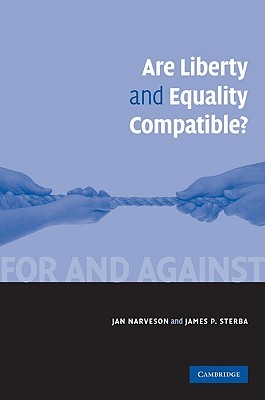
- We will send in 10–14 business days.
- Author: Jan Narveson
- Publisher: Cambridge University Press
- ISBN-10: 0521883822
- ISBN-13: 9780521883825
- Format: 15.2 x 23.1 x 2.3 cm, hardcover
- Language: English
- SAVE -10% with code: EXTRA
Reviews
Description
Are the political ideals of liberty and equality compatible? This question is of central and continuing importance in political philosophy, moral philosophy, and welfare economics. In this book, two distinguished philosophers take up the debate. Jan Narveson argues that a political ideal of negative liberty is incompatible with any substantive ideal of equality, while James P. Sterba argues that Narveson's own ideal of negative liberty is compatible, and in fact leads to the requirements of a substantive ideal of equality. Of course, they cannot both be right. Thus, the details of their arguments about the political ideal of negative liberty and its requirements will determine which of them is right. Engagingly and accessibly written, their debate will be of value to all who are interested in the central issue of what are the practical requirements of a political ideal of liberty.
EXTRA 10 % discount with code: EXTRA
The promotion ends in 20d.07:18:28
The discount code is valid when purchasing from 10 €. Discounts do not stack.
- Author: Jan Narveson
- Publisher: Cambridge University Press
- ISBN-10: 0521883822
- ISBN-13: 9780521883825
- Format: 15.2 x 23.1 x 2.3 cm, hardcover
- Language: English English
Are the political ideals of liberty and equality compatible? This question is of central and continuing importance in political philosophy, moral philosophy, and welfare economics. In this book, two distinguished philosophers take up the debate. Jan Narveson argues that a political ideal of negative liberty is incompatible with any substantive ideal of equality, while James P. Sterba argues that Narveson's own ideal of negative liberty is compatible, and in fact leads to the requirements of a substantive ideal of equality. Of course, they cannot both be right. Thus, the details of their arguments about the political ideal of negative liberty and its requirements will determine which of them is right. Engagingly and accessibly written, their debate will be of value to all who are interested in the central issue of what are the practical requirements of a political ideal of liberty.


Reviews